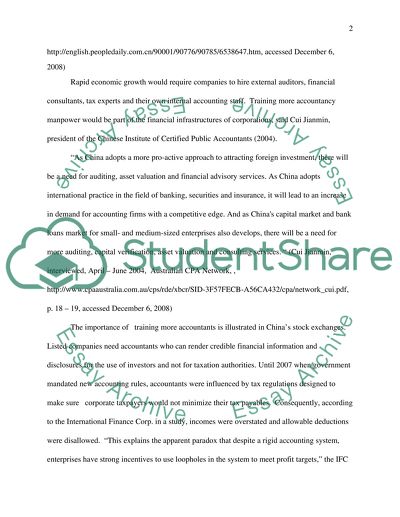Cite this document
(The Acute Shortage of Accountants in China Essay, n.d.)
The Acute Shortage of Accountants in China Essay. Retrieved from https://studentshare.org/finance-accounting/1526791-how-important-is-it-for-china-to-train-a-substantial-number-of-accountants-in-the-near-future
The Acute Shortage of Accountants in China Essay. Retrieved from https://studentshare.org/finance-accounting/1526791-how-important-is-it-for-china-to-train-a-substantial-number-of-accountants-in-the-near-future
(The Acute Shortage of Accountants in China Essay)
The Acute Shortage of Accountants in China Essay. https://studentshare.org/finance-accounting/1526791-how-important-is-it-for-china-to-train-a-substantial-number-of-accountants-in-the-near-future.
The Acute Shortage of Accountants in China Essay. https://studentshare.org/finance-accounting/1526791-how-important-is-it-for-china-to-train-a-substantial-number-of-accountants-in-the-near-future.
“The Acute Shortage of Accountants in China Essay”, n.d. https://studentshare.org/finance-accounting/1526791-how-important-is-it-for-china-to-train-a-substantial-number-of-accountants-in-the-near-future.


